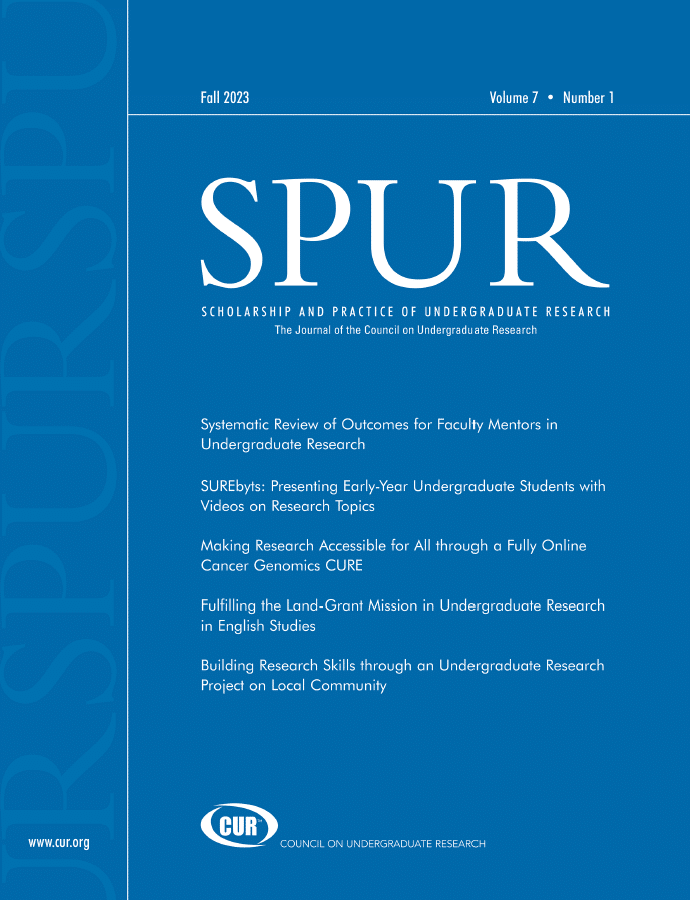SPUR (2023) 7 (1): https://doi.org/10.18833/spur/7/1/10
This research aims to build economic research skills and stimulate students’ interest in the local economy through data-based undergraduate research in entry-level economics courses. The authors developed two assignments and one student survey assessing students’ learning outcomes and implemented them in two introductory-level classes from fall 2019 to fall 2021. The survey responses confirmed that the assignments positively affected students’ primary research skills and increased students’ interest in local economic issues. The study also provides empirical evidence that undergraduate research can be carried out in both face-to-face and online classes. It confirms the positive contribution of exposing students to the research culture early in their academic journey by improving students’ skills in collecting, processing, and interpreting data on the local economy.
Recommended Citation: Pratoomchat, Praopan and Mahjabee, Rubana. 2023. Building Research Skills through an Undergraduate Research Project on Local Community. Scholarship and Practice of Undergraduate Research 7 (1): 64-70.
More Articles in this Issue
No posts found


